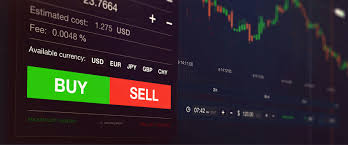
Understanding Forex Trading Taxes: A Comprehensive Guide
Forex trading can be both exciting and profitable, but it comes with its own set of challenges, especially when it comes to taxes. With many traders operating across jurisdictions, understanding how to handle forex trading taxes is crucial. In this article, we’ll break down the concept of forex trading taxes, the various tax obligations that traders may face, and how to efficiently manage them.
For those considering starting to trade, it’s vital to explore the options available such as forex trading taxes Hong Kong Brokers, as they may provide beneficial trading environments and insights into the local tax implications.
The Importance of Understanding Forex Trading Taxes
Forex trading can yield significant gains, but these gains can also attract tax liabilities. Many traders fail to account for these taxes, which can lead to unexpected tax burdens. Understanding your tax obligations ensures that you are prepared when tax season arrives and can help you take advantage of potential deductions.
Types of Taxes Applicable to Forex Trading
There are generally three types of taxes that may apply to forex trading:
- Income Tax: Profits made from forex trading are typically considered income and are taxed as such. The specifics can vary based on your country of residence and the nature of your trading activity.
- Capital Gains Tax: Depending on your jurisdiction, profits from trading operations may be classified as capital gains and might be taxed at a different rate than regular income.
- Sales Tax or VAT: In some jurisdictions, certain financial transactions might be subject to sales tax or VAT, although this is less common in forex trading.
Tax Obligations for Forex Traders
Forex traders need to be aware of their tax obligations, which typically include:
- Keeping accurate records of all transactions, including dates, amounts, and parties involved.
- Reporting profits and losses accurately on tax returns.
- Paying estimated taxes during the year if required, especially if you earn significant income from forex trading.
Record Keeping for Forex Trading
One of the most important aspects of managing taxes on forex trading is keeping detailed and accurate records. This involves:
- Documenting every trade, including the investment amount, selling price, and the dates of each transaction.
- Tracking expenses related to trading, such as platform fees and any services utilized.
- Using accounting software designed for traders to streamline the process of tracking and reporting trades.
Deductions and Credits

Depending on your location, there may be certain deductions and credits available to forex traders. Understanding and utilizing these can help reduce your overall tax liability. Common deductions for traders include:
- Trading platform fees.
- Investment expenses, including educational resources or tools.
- Home office expenses if applicable.
Filing Taxes as a Forex Trader
The process of filing taxes as a forex trader will depend on your country’s tax laws and regulations. In many cases, you may need to file as a self-employed individual or as a business entity if you meet certain criteria. It’s advisable to consult with a tax professional who specializes in forex trading to ensure compliance.
Common Mistakes to Avoid
Many forex traders make common mistakes that can lead to complications during tax season. Here are a few to be mindful of:
- Failing to report all trading income, which can lead to serious penalties.
- Not keeping proper documentation, which makes it difficult to substantiate claims during an audit.
- Ignoring local tax laws, which can vary significantly and lead to non-compliance.
The Role of Tax Professionals
Given the complexity of forex trading taxes, many traders choose to work with tax professionals. These experts can provide valuable guidance on:
- Identifying applicable tax obligations based on specific trading activities.
- Maximizing deductions and minimizing liabilities.
- Ensuring compliance with local tax laws to avoid audits or penalties.
Conclusion
Forex trading can be a lucrative venture, but understanding and managing taxes is critical for maintaining profitability. By staying informed about your tax obligations, keeping thorough records, and seeking professional help when necessary, you can navigate the complexities of forex trading taxes with confidence. As tax laws continue to evolve, it’s essential for traders to remain vigilant and proactive in their tax planning efforts.
Further Reading
For more information on forex trading taxes and to explore trading options, consider articles and resources tailored to your specific jurisdiction and trading style. The landscape of forex trading is dynamic, so ensure that your knowledge remains current and relevant.